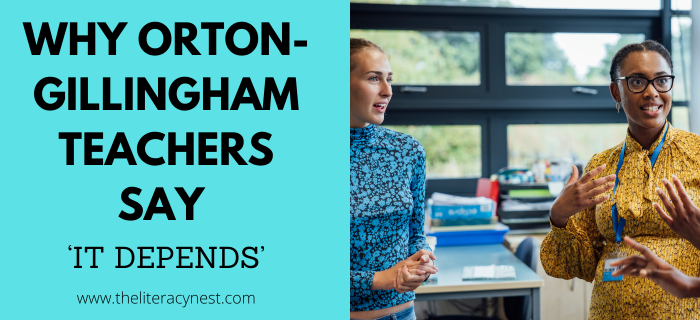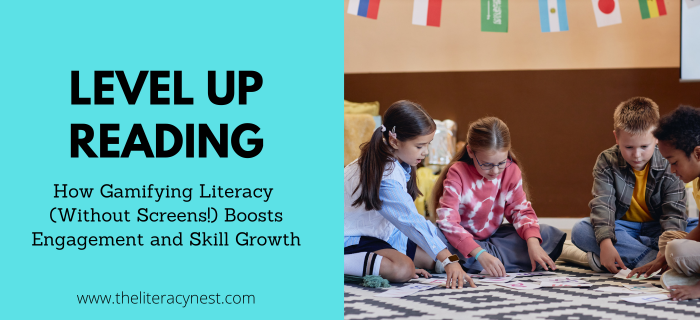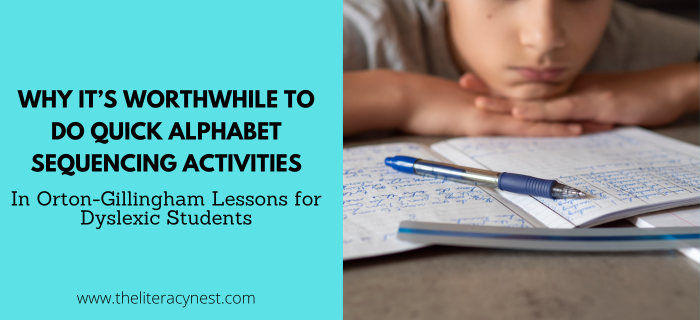Why Orton-Gillingham Teachers Say ‘It Depends’
If you’ve spent any time in Orton-Gillingham circles, there’s one phrase you’ve probably heard again and again: “It depends.” You might hear it when you ask: And the answer from your trainer, mentor, or a more experienced colleague is often a gentle but firm:“It depends.” For many OG-trained teachers, that response can feel vague, confusing,…









